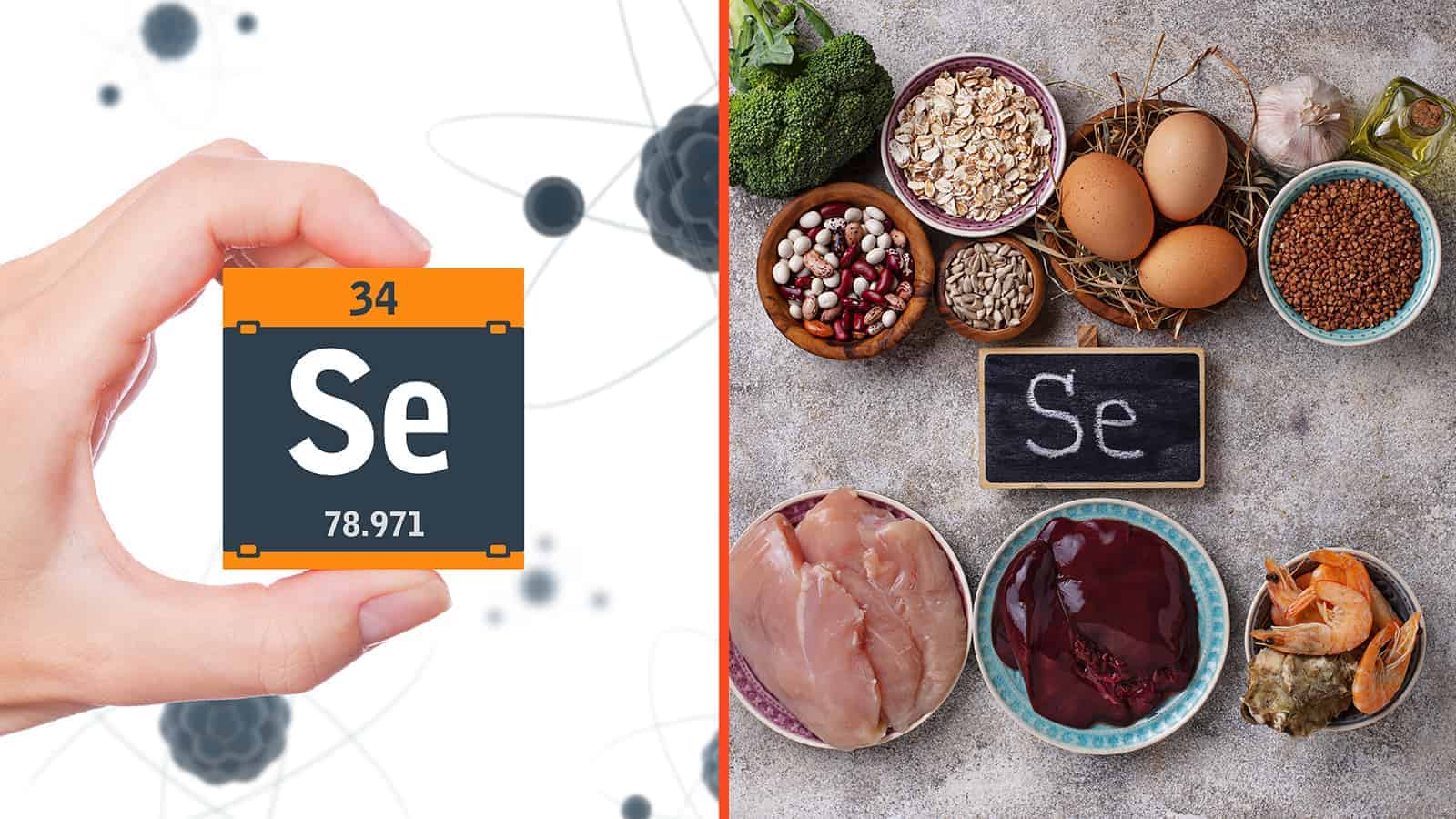Selenium, a powerful mineral that helps regulate metabolism and thyroid function, may also increase longevity. Researchers found that this vital nutrient could prevent obesity and improve the metabolic process in mice.
The study performed by Weill Cornell Medicine and the Orentreich Foundation for the Advancement of Science was published in Life on March 30, 2021.
The scientists say that the findings may lead to treatments that emulate anti-aging effects linked to dietary restriction. Best of all, people could continue to eat their regular diet while undergoing the treatments.
The team said that a few diets have been shown to extend lifespan while promoting health. Many organisms, including non-human mammals, have responded positively to the restriction of methionine, an amino acid, in their diets. Recent studies have suggested that the same effects observed in other animals would likely apply to humans. A vegan diet automatically restricts methionine consumption, but such a limited diet wouldn’t be practical for everyone.
In the current study, the research team from OFAS in Cold Spring, New York, attempted to develop a different intervention. They wanted to reproduce the effects of methionine restriction while still allowing people to eat a regular diet.
In developing this treatment, a key fact to remember is that methionine restriction diminishes IGF-1, an energy-regulating hormone. If the intervention they developed could cause a similar decrease in IGF-1, it could also benefit lifespan. Prior studies have found that selenium supplementation lowers amounts of circulating IGF-1 in rats, which shows promise for this research.
The study showed that selenium might increase longevity and protect against obesity.
First, the team wanted to investigate whether supplementing with selenium would prevent obesity in the same manner as methionine restriction. To do this, they gave young male and older female mice three different high-fat diets. The control group’s diet had moderate amounts of methionine, while the second group ate a methionine-restricted diet. The last group followed a diet with moderate amounts of methionine along with selenium supplementation.The authors discovered startling results in male and female mice of all ages in the control and methionine-restricting groups. They found that selenium supplements offered full protection against obesity and fat accumulation in the mice.
They then studied how the three diets triggered physiological changes, which generally happen with methionine restriction. To accomplish this, they measured the levels of four metabolic markers in blood samples from the mice. As they expected, the team observed dramatically reduced levels of IGF-1 in male and female mice alike. Besides, they found that the hormone leptin, which controls appetite and energy expenditure, had decreased.
Understanding the outcome
These results suggest that selenium supplementation reproduces most of the effects of methionine restriction. Furthermore, this implies that the treatment could positively impact lifespan.
To better understand the benefits of selenium supplementation, the team tried the yeast experiment. They measured the two most common markers of lifespan in yeast: chronological lifespan and replicative lifespan. The former shows how long-dormant yeast remains viable. The latter reveals how many times a yeast cell can produce new offspring.
In previous studies, the team found that methionine restriction led to a longer chronological lifespan in yeast. In this study, they wanted to find out whether selenium supplementation would have the same effect. The experiment revealed that yeast given selenium supplementation had a 62% longer chronological lifespan (from 13 days to 21 days). Besides, their replicative lifespan increased by nine generations compared with controls.
This proves that feeding yeast selenium supplements provide benefits to longevity, observed in several cell aging tests.
“One of the major goals of aging research is to identify simple interventions that promote human healthspan,” said senior author Jay Johnson, Senior Scientist at OFAS. “Here we present evidence that short-term administration of either organic or inorganic sources of selenium provides multiple health benefits to mice, the most notable of which being the prevention of diet-induced obesity. In the long term, we expect that supplementation with these compounds will also prevent age-related disease and extend the overall survival of mice. We hope that many of the benefits observed for mice will also hold for humans.”
Other benefits of selenium
In addition to improving lifespan and preventing obesity, selenium offers many other benefits.
- May lower the risk of certain cancers. A meta-analysis of 69 studies, including over 350,000 people, found that high selenium intake reduced the risk of certain cancers. Breast, lung, colon, and prostate cancers seemed to respond positively to selenium.
- Protects against heart disease. An analysis of 25 observational studies revealed that heart disease risk decreased by nearly 25% when selenium levels increased 50%.
- Enriches cognitive health. One study found that Alzheimer’s patients had improved memory when consuming selenium in either supplements or foods.
Best sources of selenium:
- Oysters: 238% of the DV in 3 ounces (85 grams)
- Brazil nuts: 174% of the DV in one nut (5 grams)
- Halibut: 171% of the DV in 6 ounces (159 grams)
- Yellowfin tuna: 167% of the DV in 3 ounces (85 grams)
- Eggs: 56% of the DV in 2 large eggs (100 grams)
- Sardines: 46% of the DV in 4 sardines (48 grams)
- Sunflower seeds: 27% of the DV in 1 ounce (28 grams)
- Chicken breast: 12% of the DV in 4 slices (84 grams)
- Shiitake mushrooms: 10% of the DV in 1 cup (97 grams)
Final Thoughts: A study found that eating selenium could lead to a longer life
If you don’t eat enough selenium, you may want to add some to your diet to enjoy a longer life. Just one Brazil nut contains more than the RDI of selenium, for instance, providing an easy source for the mineral. Seafood, eggs, and certain types of meat also have a lot of selenium. In addition to extending lifespan, this critical mineral aids in thyroid function and could ward off obesity.
While we need very little selenium to survive, it could help us enjoy our time on Earth a little longer.

















